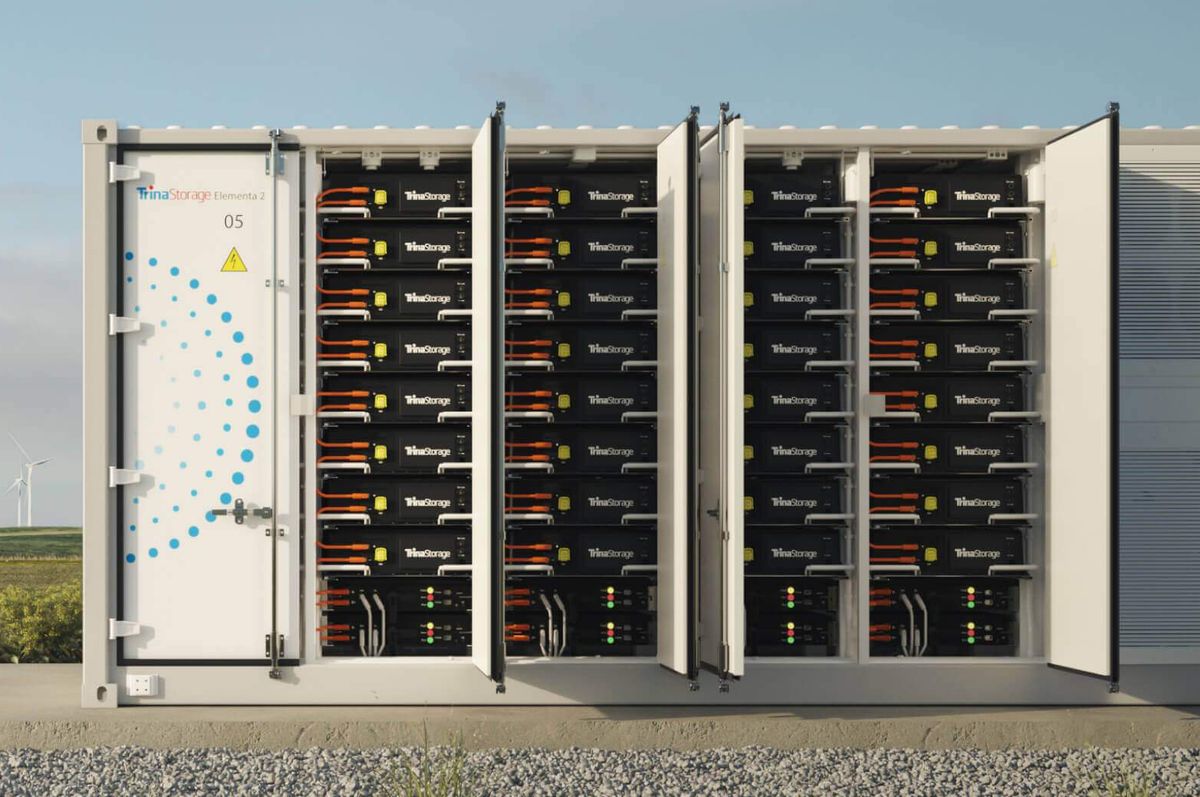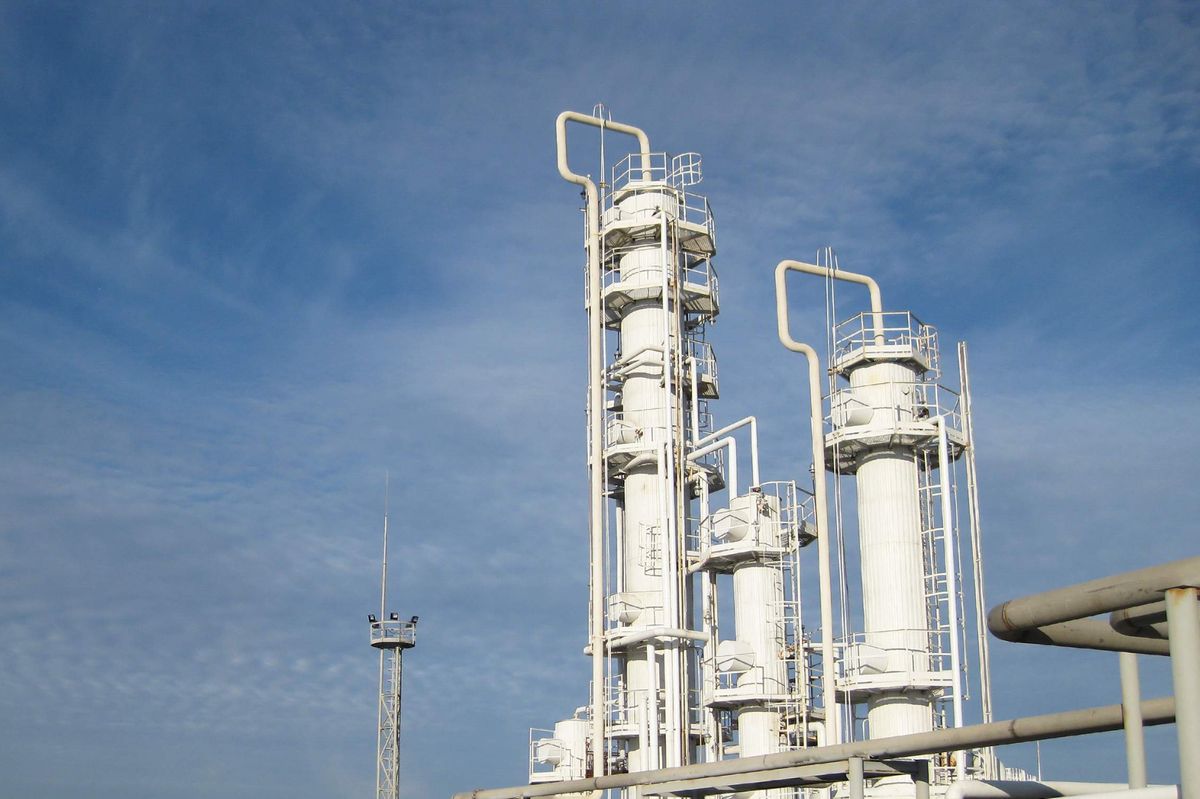CERAWeek 2025 will host more than 1,400 speakers at its annual energy-focused conference taking place March 10-14, with many hailing from Houston.
Under this year's theme, "Moving Ahead: Energy strategies for a complex world,” panels will tackle topics ranging from policy and regulation, geopolitics, power, grid, and electrification, AI and digital, managing emissions, and more.
Most of the innovation-themed events are organized under the Agora track and will feature many Houston-area startups, universities, companies, and scientists. Here are all the events on the Agora track you can't miss if you want to learn more about Houston energy innovation.
Transition in Action: Energy giants shaping a sustainable future
ExxonMobil's Senior Director, Climate Strategy & Technology Vijay Swarup will examine how major energy companies are driving energy transition goals along with panelists from S&P Global, Aramco Ventures and Gentari Sdn Bhd.
This panel is from 12:30-1 p.m. on Monday, March 10. More info here.
Syzygy Plasmonics | Deploying the World’s Most Economic Biogas to SAF Technology
Hear from Syzygy Plasmonics CEO Trevor Best about how the cleantech company's catalyst and reactor work and how the tools can dramatically reduce the cost of producing SAF from biogas from landfills, wastewater, and dairy farms.
This panel is from 2-2:30 p.m. on Monday, March 10. More info here.
Cemvita | The Future of Bioengineered Feedstocks: A Foresight Perspective
Cemvita CEO Moji Karimi will lead this panel.
This panel is from 4:30-5:15 p.m. on Monday, March 10. More info here.
Innovating with Purpose: Strengthening industrial-academic partnerships
David Dankworth, ExxonMobil's Hydrogen Technology Portfolio Manager, and Brian Korgel, the University of Texas Energy Institute Director, will be joined by leaders from MIT and S&P Global to discuss the crucial relationship between universities and industry in fostering purpose-driven innovation.
This panel is from 8:30–9 a.m. on Tuesday, March 11. More info here.
Solidec | Low-cost, Low-carbon Chemicals from Air
Solidec co-founder and CEO Ryan DuChanois will discuss how the company's approach to producing hydrogen peroxide and other key chemicals can be low-cost and low-carbon, creating a scalable path for a more sustainable chemical industry.
This panel is from 9-9:30 a.m. on Tuesday, March 11. More information here.
Collaboration Spotlight: The Carbon Hub: A public-private partnership leading the way to a sustainable carbon economy
Panelists from Rice University, Huntsman Advanced Materials, CERAWeek, The Kavli Foundation, and SABIC will discuss Rice's Carbon Hub's transformative power and what the future looks like for those creating this new carbon economy. Matteo Pasquali, the founding Director of the Carbon Hub, will be featured on the panel.
This panel is from 9:30-10 a.m. on Tuesday, March 11. More information here.
Rice University | Next-generation Electrolyzers and Electrolysis
Haotian Wang, Associate Professor in the Department of Chemical and Biomolecular Engineering at Rice University and co-founder of Solidec, will discuss the development of next-generation electrolyzers that enable lower-cost and more energy-efficient carbon capture, chemical manufacturing and critical metal recovery.
This panel is from 9:30–10:15 a.m. on Tuesday, March 11. More information here.
ExxonMobil | Real-world Progress on Building a Low-carbon Business
Schuyler Evans, ExxonMobil's CCS commerical and business development manager low carbon solutions, will speak on how the energy giant is navigating a complex energy transition and share insights into the strategic thinking behind building a new business that helps reduce emissions.
This panel is from 10-10:30 a.m. on Tuesday, March 11. More information here.
Enovate.AI | AI-driven Advantage: Automate. Optimize. Decarbonize.
Enovate.AI Chief Experience Officer Rebecca Nye, joined by Last Mile Production, will show how its 3-clicks digital strategy empowers operators to make faster, smarter decisions—reducing emissions, enhancing productivity and unlocking new levels of profitability.
This panel is from 10:30–11 a.m. on Tuesday, March 11. More information here.
Financing the Future: Scaling clean energy through innovative investment strategies
Jim Gable, president of Chevron Technology Ventures and vice president of innovation, along with Greentown Lab's new CEO Georgina Campbell Flatter, will discuss the bankability of technologies in different geographies, investment opportunities in emerging markets, sources of funding and risk management strategies investors are using. Panelists also include leaders from Siemens Energy, Energy Impact Partners, and S&P Global Commodity Insights.
This panel is from 12:30–1:10 p.m. on Tuesday, March 11. More information here.
Sage Geosystems | Geothermal at the Speed of Need: How Sage Geosystems is meeting growing energy demand
Learn from Jason Peart, general manager of strategy and development, how Sage's approach to geothermal technology is tackling the fast-growing energy demands of critical sectors, including data centers, utilities, energy storage, and US Department of Defense projects.
This panel is from 1:30–2 p.m. on Tuesday, March 11. More information here.
Rice University | Valuing Nature-based Solutions for CO2 Removal
Carrie Masiello, director of the Rice Sustainability Institute, will introduce to the breadth of nature-based solutions possible, explore some of the most exciting opportunities and give guidance on how to think rigorously about matching individual NBS opportunities to specific portfolio needs.
This panel is from 1:30–2:15 p.m. on Tuesday, March 11. More information here.
Square Robot | Bridging the Divide: How Square Robot's tank inspections align corporate strategy with on-the-ground reality
Square Robot CEO David Lamont will discuss how companies can keep their tank assets online by adopting new technology and navigating the challenges of aligning corporate objectives with site-level realities.
This panel is from 3–3:30 p.m. on Tuesday, March 11. More information here.
The Green Gold Rush: A multi-trillion dollar opportunity?
Bobby Tutor, chairman of Houston Energy Transition Initiative and CEO of Artemis Energy Partners, will be joined by leaders from Accenture, S&P Global, and BeyondNetZero to discuss the immense economic potential of climate solutions and highlight the business opportunities created by the transition to a low-carbon economy.
This panel is from 4–4:30 p.m. on Tuesday, March 11. More information here.
ExxonMobil | Applying Technology to Maximize Value in the Permian Basin
James Ritchie, Exxon's vice president upstream technology portfolio, will share the latest technologies being developed and deployed to improve recovery and capital efficiency in the Permian Basin and demonstrate how these technologies and innovations maximize overall value while reducing greenhouse gas emissions and water usage.
This panel is from 2:30–3 p.m. on Wednesday, March 12. More information here.
Rice University | Plasma Foundry for Scalable Industrial Decarbonization
Aditya Mohite, a Rice professor and the faculty director of the Rice Engineering Initiative for Energy Transition and Sustainability (REINVENTS), will share how The Plasma Foundry, a 1:1 customized accelerator at Rice, is using cold plasma technology and its accelerator model to provide disruptive solutions at scale.
This panel is from 9:30–10:15 a.m. on Thursday, March 13. More information here.
Fervo Energy | Speed and Scale: The Geothermal Decade Is Now
Quinn Woodard Jr., Fervo Energy's senior director, power generation and surface facilities, will discuss how the company is pioneering transformative EGS technology to power data centers, homes and beyond.
This panel is from 10:30–11 a.m. on Thursday, March 13. More information here.
Corrolytics | Digitizing and Revolutionizing Corrosion Detection and Monitoring for Industrial Assets
Anwar Sadek, Corrolytics co-founder and CEO, will share how the company is revolutionizing corrosion detection and monitoring with patented technology to proactively enhance safety, reduce costs and extend asset lifespan.
This panel is from 10:30–11 a.m. on Thursday, March 13. More information here.
Zeta Energy | The Rise of Lithium-Sulfur Batteries: A solution to critical metal constraints
Rodrigo Salvatierra, Zeta's chief science officer, will introduce Zeta Energy’s lithium-sulfurized carbon technology, which effectively addresses the key limitations of lithium-sulfur batteries.
This panel is from 3–3:30 p.m. on Thursday, March 13. More information here.
Future Cities on the Move: Innovative pathways for sustainable urban mobility
Lisa Lin, Harris County's director of sustainability, will speak on this panel on successful public-private partnerships driving innovation in sustainable transport by leveraging technology and data analytics. She'll be joined by Aberdeen's council co-lead and leaders from S&P Global and GreenCap, based in Cape Town, South Africa.
This panel is from 3:30–4 p.m. on Thursday, March 13. More information here.
Collaboration Spotlight: Building a resilient Gulf Coast energy and chemical sector
Greater Houston Partnership and HETI's Jane Stricker will join Ramanan Krishnamoorti from the University of Houston and leaders from Argonne National Laboratory and SABIC to explore opportunities and pathways to strengthen the US Gulf Coast’s global leadership position in base chemical manufacturing and the national security and economic opportunities that innovation and process integration create.
This panel is from 4:30–5 p.m. on Thursday, March 13. More information here.








 The Oxy Innovation Center is now open at the Ion in Houston, and a new coworking space launches this week. Photo courtesy of the Ion
The Oxy Innovation Center is now open at the Ion in Houston, and a new coworking space launches this week. Photo courtesy of the Ion
